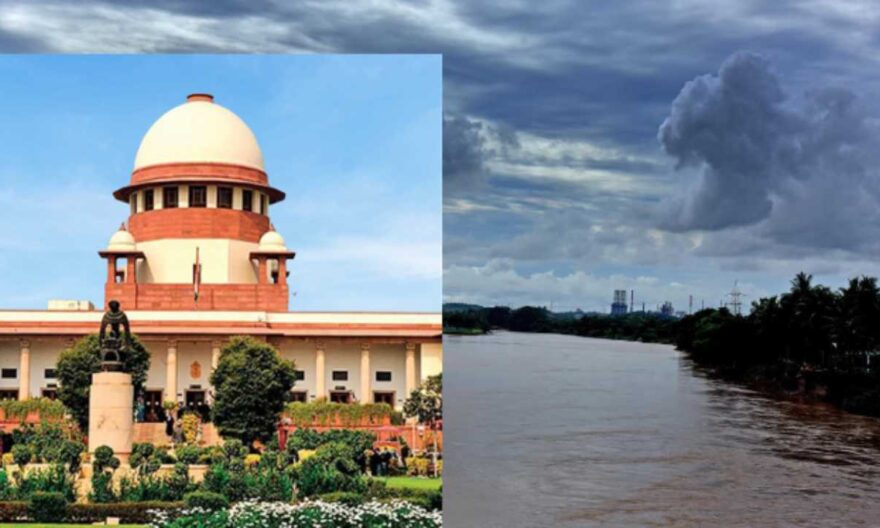
The two Supreme Court judges assigned to preside over the inter-State water dispute concerning the Pennaiyar river have expressed their decision to recuse from the case due to their personal connection to the rival States involved.
In a light-hearted manner, the judges jokingly remarked that they might end up fighting with each other if they were to handle the dispute.
A bench comprising of Justice AS Bopanna and Justice MM Sundresh was originally scheduled to hear the case today when the judges themselves raised the issue.
“We both cannot hear,” Justice Sundresh, who hails from Tamil Nadu, stated
“We will start fighting,” Justice Bopanna, who is from Karnataka, added in a lighter vein.
The case pertains to a dispute concerning the sharing of water from the Pennaiyar river, known as Dakshina Pinakini in Kannada.
The Tamil Nadu government filed an original suit against the Karnataka government and the Central government. The Union Jal Shakti Ministry informed the Supreme Court that the proposal to form a Pennaiyar Water Disputes Tribunal is awaiting final approval from the Union Cabinet.
The court had previously criticized the delay in resolving the inter-State dispute through negotiations. In 2019, the court allowed Tamil Nadu to seek the constitution of a tribunal to address the issue.
The Top Court granted an extension in May for this purpose. Both Tamil Nadu and Karnataka have experienced similar disputes over the Cauvery/Kaveri river. In 2018, the Supreme Court ruled that water bodies are national assets and no single state can claim exclusive rights over them.
The dispute between the two states dates back to agreements made in 1892 and 1924, which led to ongoing discontent. The Cauvery Water Disputes Tribunal was established by the Supreme Court after failed negotiations, and its award in 2007 allowed Tamil Nadu to draw a fixed amount of water daily. However, the dispute continued as both states petitioned the tribunal for a review.
In 2016, Tamil Nadu approached the Supreme Court again when Karnataka claimed it had no more water to share, leading to the court’s direction to form a Cauvery Management Board.




